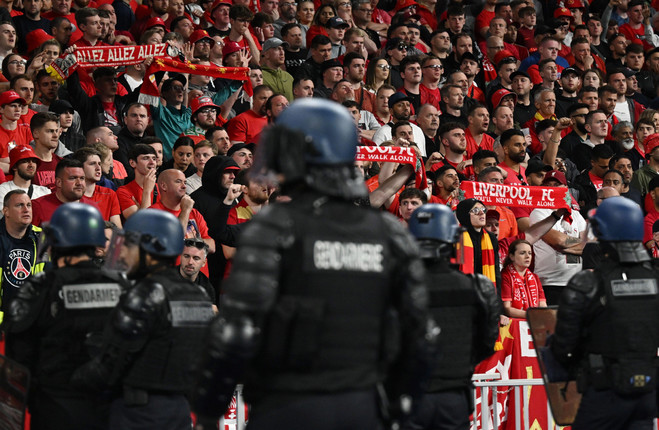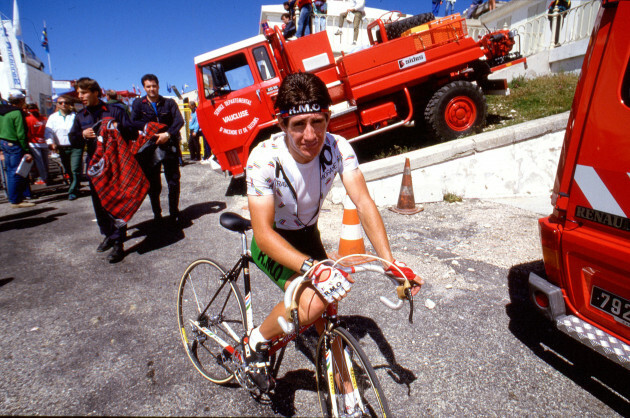1. The French government, police and Uefa united instantly to put the blame on Liverpool supporters, claiming that the chaos was caused by thousands seeking entry with fake tickets. Echoes of the 1989 Hillsborough disaster, in which 97 people were unlawfully killed but the South Yorkshire police falsely blamed Liverpool supporters, were inescapable.
Two official reports in France have severely criticised the police operation but not substantially contested the claims of “industrial scale” ticket fraud. Liverpool and their supporters consistently called for a full, independent inquiry, to establish the truth and learn lessons so that future disasters can be avoided.
Here the Guardian presents the fullest visual account yet of a traumatic night, based on detail in the official reports, testimony given to the French senate, extensive video footage and interviews with supporters, witnesses and experts.
2. Eamon McGee: You were photographed lifting Sam Maguire a few years ago. How did Donegal’s All-Ireland wins resonate with you?
Frankie Boyle: I listened to them both on the radio! I remember both times that all my uncles (who live in Dublin and Monaghan) went straight up to Donegal to get on the drink. We used to all go up and watch the Ulster final in Clones every year when I was a kid. I think the last time Donegal won the Ulster final I had offered to buy all the players a sheep if they won. I just donated to the training fund in the end. Which is good, because I looked into it, and getting a single sheep delivered to a whole load of different people is a logistical nightmare.
3. “What cycling gave me was a great sense of pride in being . . . not a cyclist – I was a champion cyclist. I was road race champion when I was 19 and working in the airport as an apprentice plumber. I was the youngest ever to win it at that stage. In terms of your own self-respect, it gave you . . .” he hesitates for a second.
“Nuala O’Faolain was in a shop one day and was recognised by a couple of women. One of them looked at her and asked ‘Are you someone?’ I was someone. I won the road race championship. My father was someone and I wanted to be someone and that’s what cycling gave me, a chance to be someone.
“So cycling was very important to my self-esteem and continued to be, right through the various phases until I wrote Rough Ride,” he says of the seminal biography that peered under the covers of professional cycling, revealing some of its dirty laundry. “Then I was ‘no-one,’” he laughs.
4. English football people morph into the Bull McCabe whenever a sharp-suited Californian lands into town shouting the odds about how ‘saaaccer’ should be organising its business.
And when word reached them of some of the funky ideas being floated at the SALT conference in New York, the Premier League stalwarts stiffened themselves against the bar counter, inhaled deeply and intoned “Are these the same Outsiders who came up with the Super League?”
A highly enjoyable read by RTE Sport’s Conor Neville on Chelsea owner Todd Boehly’s All-Star idea.
5. The limits on Silver’s power mean there are limits to the league actually upholding the ideals and principles it so often trumpets. The league will claim to hold everyone in its community to the same standards, but in practice it does not. And unless the Board of Governors is willing to amend the NBA constitution and bylaws to make it easier to discipline—and when necessary, expel—owners, that doesn’t seem likely to change.
“I’m so proud to be a part of a league committed to progress!” LeBron tweeted excitedly Wednesday, after seeing the news.
It was a nice sentiment, an understandable reaction. Robert Sarver will soon be gone, and the cheers are warranted. But it’s circumstance, not justice.


